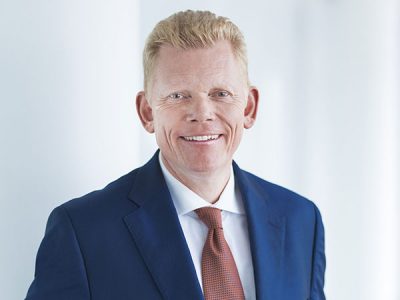Archived: Change of government in Latin America’s most important markets
New presidents have taken office in Mexico and Brazil. How they will govern remains unknown. One thing is for sure: they are bound to change Latin America’s political and economic climate.
The year 2019 is getting off to a tense start in Latin America’s two biggest countries. In both Mexico and Brazil, presidents have taken office whose manner of governance over the coming years is hard to predict. Their respective success or failure will significantly impact the region: the two countries account for almost two thirds of the gross domestic product, and, with around 335 million inhabitants, slightly more than half of Latin America’s population. These are important locations for the German economy. Whilst German industry supplies the large local market in Brazil, it primarily uses Mexico as an export platform to the USA and the world at large.
At first glance the two heads of state contrast starkly: Andrés Manuel López Obrador in Mexico is critical of business and wants to eliminate poverty in the country – primarily through the redistribution of wealth. Mexican entrepreneurs fear that he intends to wind back the clock and return to policies of closed borders, state dirigisme, and social policy in accord with the unions. Jair Bolsonaro in Brazil is a right-wing politician and former captain who wants to carry out neoliberal reform. The business community in Brazil is hoping that Bolsonaro will finally give the country the urgently required impetus towards reform, privatise state-owned companies, and open up the economy.
But despite the ideological differences, the two incumbents bear a certain resemblance. Not only that they are of a similar age, both being in their mid-sixties; both were able to successfully present themselves to voters as anti-establishment candidates. They have promised a break with conventional politics and mean to take a hard line on corruption and crime. The governments preceding them failed. Brazil and Mexico are both states with extremely high levels of crime and corruption. Furthermore, a significant factor in their respective victories was that they were able to secure the votes of the much-increased evangelical groups in the world’s largest Catholic countries.
Neither candidate, however, is a political outsider: both Obrador and Bolsonaro have been professional politicians for decades. The Mexican president began his political career in the Institutional Revolutionary Party (PRI), which ruled the country for seventy years. He was mayor of the capital, Mexico City, and is a three-time presidential candidate. The Brazilian, Bolsonaro, has been a member of parliament for almost thirty years. Yet both politicians have always been mavericks.
The new presidents are celebrated by supporters as saviours; individuals who, unlike the unloved politician-caste, will govern nationalistically “for the people.” Yet, given the cult of personality created around them, they each resemble the traditional caudillos of South America. Both are politicians who hardly know the world beyond their national borders and for whom it seems to hold no great interest.
Nevertheless, there are differences between the two countries for businesses and investors: López Obrador is assuming great power in Mexico. His party has a majority in Congress and his government is in control of the budget. With the construction-block of the new airport in Mexico City, he has shown that he will not take the pragmatic course towards the economy that entrepreneurs had hoped he would. Furthermore, the judiciary, media and opposition in Mexico are not strong enough to make the president more willing to compromise. Mexico’s economy is in good shape, too. López Obrador is under no pressure to deliver economic reform in the near future.
Things are different in Brazil: Bolsonaro is obliged to get the problematic pension-reform swiftly under way. Only then can the budget deficit be reduced in a timely manner so that the Brazilian economy might grow again, providing that investors implement their projects and businesses create jobs. Should he fail in this phase, Bolsonaro will be rapidly weakened politically as the economy will stagnate once more – in the wake of three years of recession. Furthermore, he faces a strong Congress, with only a minority of members of parliament on his side. The media, the judiciary and civil society will hold sway over the president. He has also relinquished performative economic competence: his super minister for economic affairs has filled all the relevant positions with capable economists, bankers and technocrats.
In conclusion, then: at first glance the chances for economic reform in Brazil appear greater than in Mexico. Yet both presidents are populists. So it is difficult to predict how they will react in the face of resistance to their policies or to crises. Both heads of state might try to strengthen the executive branch. This would inaugurate a sea-change in Latin America’s largest states similar to the one that has been ongoing in Turkey, Hungary, and more particularly the USA, for some time.






